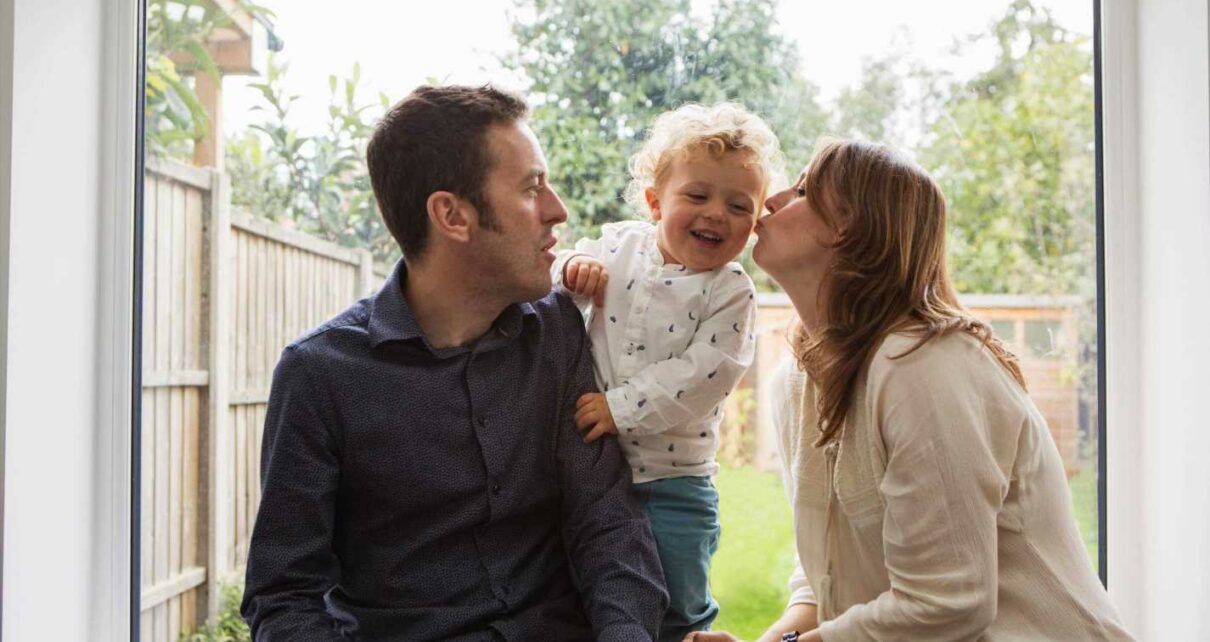PARENTS expecting a pay rise this year could lose valuable child benefit payments if they're not careful.
A little-known rule means even a small rise in your pay could tip you over the "high income" child benefit threshold.
If that happens, your child benefit payments start to go down and eventually you can lose them altogether.
It's down to the way government assesses who can claim the help.
Who gets child benefit?
Parents are entitled to child benefit for all children under 16 and for children aged 16 to 19 if they live at home and are in certain types of education.
Child benefit rates went up in April, rising from £21.80 a week to £24 for the eldest child and for only children.
Read more in money
Warning for parents as child benefit could stop for thousands within days
Child benefit May payment dates 2023: will I get paid early?
Each additional child now qualifies for £15.90 a week, up from £14.45 previously.
But crucially, parents can only claim the full benefit if they both earn less than £50,000 a year.
As soon as either parent earns over this amount, the "high income charge" kicks in and payments start to drop.
What is the high income child benefit charge?
The high income child benefit charge came in during 2013 and was intended to make things "fairer" for parents on lower salaries.
Most read in Money
Exact dates in June millions set to get income boost worth up to £522
Three more banks hike mortgage rates – what it means for you
Major cinema chain shutting several branches today – is your local closing?
Brit workers in line for 2p tax cut will have to wait until next April
It means that higher earning families can claim less support for their children.
In theory this leaves money in the pot to pay lower income families a higher rate of child benefit.
The parent claiming starts to lose child benefit when they earn £50,100.
This is because government knocks 1 per cent off the benefit payment for every £100 the claimant earns over £50,000.
It means anyone earning £60,000 or more won't get the payment at all.
Single parents lose out
The high income charge rule is good for two-parent families.
This is because the charge applies to each parent separately.
Where a child lives with just one parent, that parent is responsible for claiming the benefit.
As soon as that parent's income tips over £50,000 a year, the charge applies.
If the child lives with both parents, the charge kicks in when either parent earns more than £50,000.
It doesn't kick in if both salaries combined go over though.
That means single parents' household income is restricted to £50,000 before the benefit starts to fall.
But a couple living with their child can claim 100% of child benefit even if they both earn £50,000.
This means they can earn a joint household income up to £100,000 before the charge applies.
More families are being hit by the charge
It might seem like a lot of money, but because inflation is so high £50,000 today is worth a lot less than it was in 2013.
And the high income charge threshold has stayed at £50,000 for a decade.
Meanwhile, average wages have risen and more people have seen their income breach the child benefit claim limit.
In fact, more than a million families now pay the charge according to experts at NFU Mutual.
They say the high income threshold would now be £65,000 if government had raised it in line with inflation.
You can beat it using this loophole
The government looks at your income after you've paid tax on it.
That's crucial, because it means you can earn over £50,000 if you use a little-known tax loophole to keep your take-home pay under the threshold.
Some employee benefits are paid before you pay income tax and national insurance.
And money you put into your company pension, is not counted when your child benefit entitlement is calculated.
That means you can up your workplace pension contributions even just a small amount and keep your salary under £50,000 for the purposes of claiming child benefit.
Most companies match pension contributions too, so you're technically earning even more in retirement savings.
And the government will give you another 20% boost on top of that.
Why you should still register for child benefit
Even if you don't qualify for child benefit payments, you should still register for them.
Claiming the benefit means you get national insurance credits, topping up how much state pension you qualify for when you retire.
If you don't register, it counts as a gap in your national insurance record and will mean your state pension entitlement is lower.
However, this looks set to change after government announced plans to allow parents who didn't register for child benefit to get a national insurance credit retrospectively.
File a tax return if you pay the charge
It's vital you remember to file a self-assessment tax return if you hit the child benefit high income charge.
This is because you have to declare to HMRC that you need to pay the charge as tax on some of the child benefit you have received.
You can opt out of claiming child benefit and avoid paying the charge.
If you fail to declare the tax you owe, HMRC can backdate charges and interest.
Read More on The Sun
This Morning fans say the same thing after Holly Willoughby’s emotional statement
I put up a privacy fence to block out my neighbours but they’vesabotaged it
Not knowing you have to declare the high income charge for child benefit is not an excuse and you'll still owe the tax.
Do you have a money problem that needs sorting? Get in touch by emailing [email protected]
Source: Read Full Article









